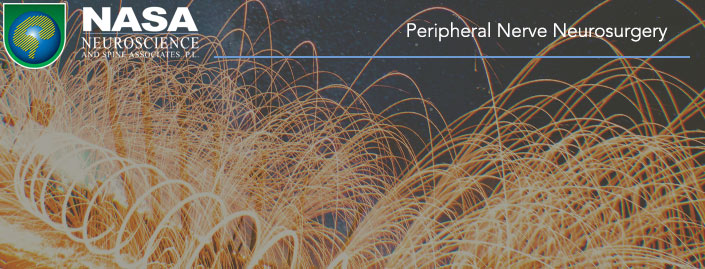Peripheral Nerve Neurosurgery

If you experience peripheral nerve pain that does not respond to the first line of treatment methods (medications, therapies, exercise, and lifestyle changes) then you may be a candidate for Peripheral Nerve Neurosurgery.
What is Peripheral Nerve Pain?
Peripheral nerves consist of those nerve systems that function outside of the spinal cord and brain systems. They include the nerves found in your arms and legs, hands and feet, face, and even your internal organs. They work to send signals to your brain about the physical sensations you are experiencing.
When your nerves are working properly the peripheral nervous system sends the right sensation message to your brain. However, when it malfunctions you can experience pain when there should be no reason to feel it, as well as not feeling pain when you should.
What conditions can be treated with Peripheral Nerve Neurosurgery?
Many underlying conditions can cause peripheral nerve pain, from an infection, to illness, injury, or disorder. Because Peripheral Nerve Neurosurgery is performed after other treatments have failed, most patients will have already participated in the diagnostic process. Common conditions treated with Peripheral Nerve Neurosurgery include:
- Diabetic Neuropathy
- Pain as a result of sports injuries
- Carpal Tunnel, Tarsal Tunnel, and Cubital Tunnel syndromes
- Pain as a result of tumors
- Pain after surgery (commonly knee or ankle surgery)
- Pain after breast reconstruction
- Pain after Caesarian section
What happens during the procedure?
Most of the pain associated with peripheral nerve conditions is a result of pressure (compression) on the affected nerves. The procedure to treat it requires small incisions and is often an outpatient operation. If your condition requires nerves to be divided and rerouted, then the procedure may result in an area of numbness on the skin in lieu of the pain.
Peripheral Nerve Surgery at Neuroscience & Spine Associates
Our Peripheral Nerve Surgery team applies advanced diagnostic imaging and electrodiagnostic testing to accurately determine the optimum treatment method. Our goal is to not only minimize pain, but improve function, helping you to get back into the swing of life. If you are interested in scheduling an appointment look for the location nearest you.
Source: U of M Health
